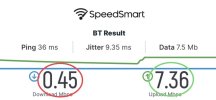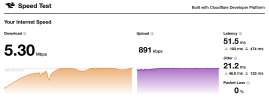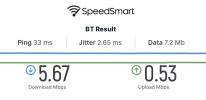That article only talks about activities, not when the phone isn't doing anything in standby but can still receive pushes such as Messenger or WhatsApp. Also, which version of GSM is it talking about? The phone is consuming power by being able to receive voice calls in standby, so it is maintaining a connection to the base station whether I use data or not. Is that the same connection as receives data, or is that additional?
Then again, since I switched networks, my phone is able to receive calls via WiFi. If I switched to air mode and then re-enabled WiFi, is that going to save power over keeping the 3G/4G and turning off WiFi?
I guess WiFi will be better, because even if the 3G/4G tower is more efficient per se, I have a poor signal therefore assume the phone has to use a high transmit power to remain in contact.
 and thanks for the responses.
and thanks for the responses. and thanks for the responses.
and thanks for the responses.





